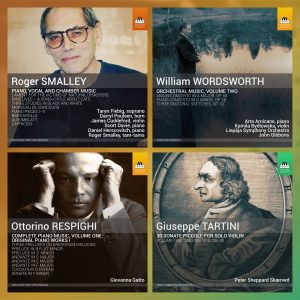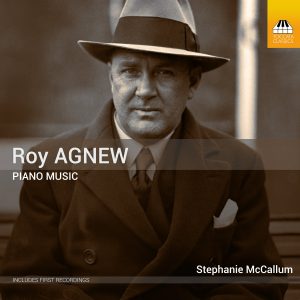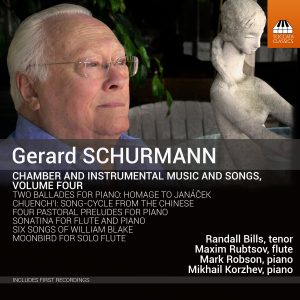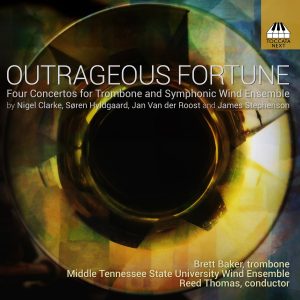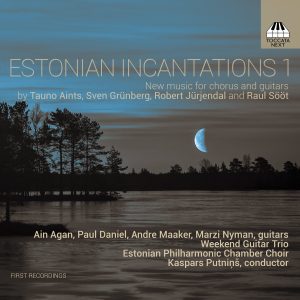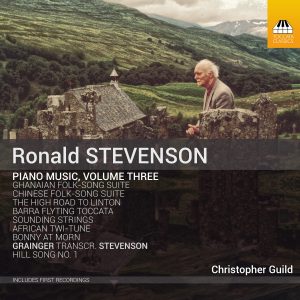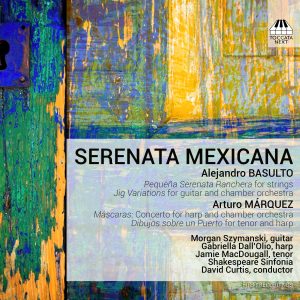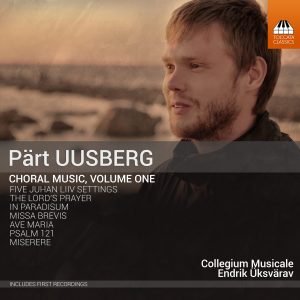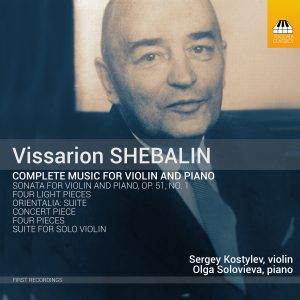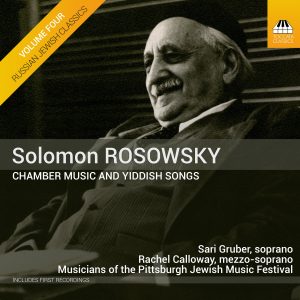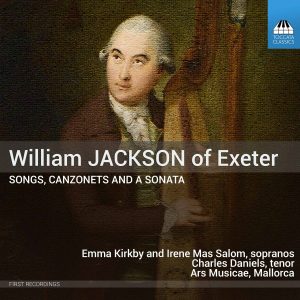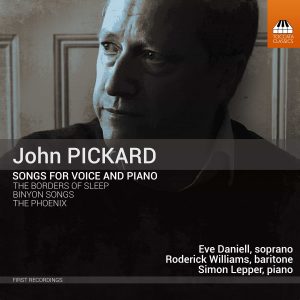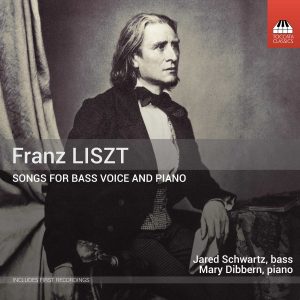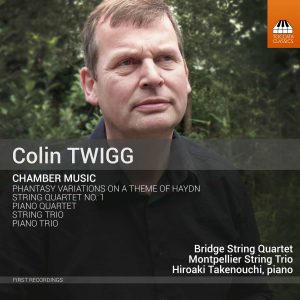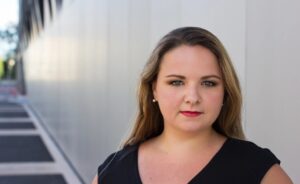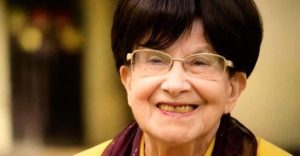Search Results for "1997 Bilbao International Vocal Competition winner Chinese tenor" – Page 7
Showing results for 1997 bulb international vocal competition winner chinese tenor 1997 tenor 1997 1997 1997
August 2019 Bundle
Included in this bundle:
Roy AGNEW: Piano Music
Roy Agnew (1891–1944) – one of few early-twentieth-century Australian composers to gain international success – wove many external influences into a warmly Romantic personal style of striking variety and wide appeal, and his compositions, largely for the piano, are startlingly virtuosic, harmonically daring and charmingly sentimental by turn. Beautifully written by a natural pianist for his own instrument, they often recall the virtuosic textures of Liszt and Skryabin and occasionally show flashes of the Impressionist colours of Debussy.
Stephanie McCallum, piano
Gerard Schurmann: Chamber and Instrumental Music and Songs, Volume Four
This fourth Toccata Classics album of the chamber music of Gerard Schurmann – born in the former Dutch East Indies in 1924, naturalised Briton and now a resident of Los Angeles – adds two major song-cycles (one of them written for Britten and Pears) and works for flute and piano to the mix, in a distinctly personal language derived from influences ranging from Javanese gamelan to Bartók and Britten. Schurmann’s music somehow manages to blend elegant intensity and touching lyricism, with a result balanced between strength and sensitivity.
Randall Bills, tenor; Tracks 1-7, 16-21
Maxim Rubtsov, flute
Mark Robson, piano; Tracks 1-7, 9-12, 13-21
Mikhail Korzhev, piano; Track 13
Outrageous Fortune: Four Concertos for Trombone and Winds
This unusual album shows the contemporary trombone in a rich variety of guises – dramatic, lyrical, flirtatious, solemn, capricious and many more – in four recent concertante pieces for trombone and symphonic wind band, demonstrating the striking versatility of the instrument. It’s an international undertaking, too: the soloist is English, the band and conductor American, and the composers American, Danish, Belgian and English, all four writing in a language that is direct and immediate.
Brett Baker, trombone
Natalie Grady, voice actor (Tracks 5, 6)
Middle Tennessee State University Wind Ensemble
Reed Thomas, conductor
Estonian Incantations 1
This remarkable recording explores an unsuspected soundworld – that of guitars, electric and acoustic, and chorus – in new works by four contemporary Estonian composers, whose styles range from the primitivism of ancient Estonian magical incantations via plainsong-like meditation to electronic sampling.
Marzi Nyman, guitar (Tracks 1 – 2, 6)
Andre Maaker, seven-string acoustic guitar (Tracks 3, 6)
Weekend Guitar Trio (Tracks 4, 6)
Ain Agan, fretless guitar (Tracks 5, 6)
Paul Daniel, electric guitar (Tracks 5, 6)
Annika Lõhmus, vocal (Track 5)
Estonian Philharmonic Chamber Choir
Kaspars Putniņš, conductor
Robert Jürjendal, electric guitar, electronics
Tõnis Leemets, electric guitar, electronics
Mart Soo, electric guitar, electronics
Ronald Stevenson: Piano Music, Volume Three
The Scottish composer Ronald Stevenson (1928–2015) was a virtuoso concert pianist in the tradition of Beethoven, Liszt and Rachmaninov but, like his friend Percy Grainger, he was also fascinated by the folk musics of the world. This third album of his piano music juxtaposes his arrangements of Celtic – Breton, Cornish, Irish, Manx, Scots and Welsh – folk-songs and dances with his Chinese and Ghanaian Folk-Song Suites and his resourceful transcription of Grainger’s visionary Hill Song No. 1 for wind band, here realised as an expansive tone-poem for the piano.
Christopher Guild, piano
Serenata Mexicana
The Anglo Mexican Foundation celebrates its 75th anniversary with this programme of three of its recent commissions – from Mexican composers Alejandro Basulto and Arturo Márquez – joining the first recording of Márquez’s harp concerto Máscaras, in an album that interleaves nocturnal warmth with an infectious spirit of dancing energy.
Morgan Szymanski, guitar (Tracks 2–13)
Jamie MacDougall, tenor (Tracks 14–18)
Gabriella Dall’Olio, harp (Tracks 14–22)
Shakespeare Sinfonia (Tracks 1–14, 19–22)
David Curtis, conductor (Tracks 1–13, 19–22)
Pärt Uusberg: Choral Music, Volume One
This album introduces both a new voice and a new choir to western audiences: the Estonian Pärt Uusberg (b. 1986) is well known at home as a film actor as well as a composer; and in 2017 Collegium Musicale carried the coveted Silver Rose Bowl of the EBU competition ‘Let the Peoples Sing’ home to Tallinn. Uusberg’s works use many of the devices that have made recent Baltic choral music so popular in the wider world: melodies that unfold calmly over long bass lines, sustained by suspensions and piqued by mild dissonance – reflecting an awareness of the immensity of nature in music that is both exquisitely beautiful and infinitely touching.
Collegium Musicale
Endrik Üksvärav
Vissarion Shebalin: Complete Music for Violin and Piano
This first recording of the works for violin and piano by the Russian composer Vissarion Shebalin (1902–63) – a close friend and colleague of Shostakovich – reveals a surprisingly high number of unsuspected gems: music immediate in its melodic appeal but plumbing real depths of feeling. The integrity of the music reflects the integrity of its composer, as Shostakovich made clear: ‘His kindness, honesty and absolute adherence to principle always amazed me. His enormous talent and great mastery immediately earned him burning love and authority with friends and musical community’.
Sergey Kostylev, violin
Olga Solovieva, piano
 Pure Sound International Award for best audio recording of Russian academic music
Pure Sound International Award for best audio recording of Russian academic music
2nd Prize Chamber Instrumental Music
Solomon Rosowsky: Chamber Music and Yiddish Songs
This fourth album in the Toccata ‘Russian Jewish Classics’ series is devoted to one of the founding members of the influential Society for Jewish Folk Music in St Petersburg, Solomon Rosowsky (1878–1962). The son of a prominent cantor, Rosowsky was an eminent scholar of synagogue chant in his own right, but his instrumental and vocal chamber music reveals much wider influences, ancient and modern. From a whirling showpiece for piano trio via tender lullabies to the Mediterranean desert evoked in the Biblical drama Jacob and Rachel, Rosowsky’s music embraces the rich and varied heritage of the Jewish people.
Musicians of the Pittsburgh Jewish Music Festival
Sari Gruber, soprano (Track 10)
Rachel Calloway, mezzo-soprano (Tracks 4 – 6, 14)
William Jackson: Songs, Canzonets and a Sonata
William Jackson of Exeter (1730–1803) – a painter and writer as well as a composer – has been, until now, something of a hidden treasure. As Timothy Roberts writes in his introduction to this first album of Jackson’s music, ‘his songs are rooted in English traditions, and if his harmonies rarely move beyond those of Corelli and Handel, Jackson’s emphasis on sensibility also brings hints of early Romanticism’. ‘His melodies were pure and natural’, as one contemporary observed, resulting in music that is both elegant and charming.
Emma Kirkby, soprano (Tracks 3, 5, 6, 13, 14, 16, 19)
Irene Mas Salom, soprano (Tracks 2, 3, 6, 13, 14, 16, 19), violin (Tracks 7, 9–11)
Charles Daniels, tenor (Tracks 1, 5, 7, 12, 15, 17)
Maria-Antònia Melià, flute (Track 4)
Bernat Cabot, violin (Tracks 7, 9–11)
Cristina Trenchs, viola (Tracks 9–11)
Sylvia Serrano, cello (Tracks 9–11, 12)
Timothy Roberts, harpsichord (Tracks 9–11)
Ars Musicae, Mallorca (Tracks 1–8, 12–19)
John Pickard: Songs for Voice and Piano
The English composer John Pickard (b. 1963) is best known for a series of powerful orchestral works, five symphonies among them. But this album of songs – his complete output for voice and piano to date – demonstrates that he can generate drama on a smaller scale, too. These settings – of two less familiar poets of the First World War, often exploring man’s relationship with nature, and a translation of a ninth-century Anglo-Saxon phantasmagorical allegory – encompass a wide range of moods, requiring soaring vocal lines, declamatory authority and the gentlest intimacy, supported by piano textures that can are up in freewheeling virtuosity.
Roderick Williams, baritone (Tracks 1-5, 7-15)
Eve Daniell, soprano (Track 6)
Simon Lepper, piano
Franz Liszt: Songs for Bass Voice and Piano
Throughout Liszt’s long career, his songs – perhaps the most neglected part of his enormous output – took a radical approach to form, eschewing convention in search of a sincere musical response to each text. His free-spirited creativity meant that a single song would often call on a range of stylistic devices, among them bel canto vocal lines, unaccompanied recitative, orchestrally conceived piano textures and audacious harmonic procedures. This first recording of Liszt songs by a bass voice brings out both the power and poetry of his remarkable imagination.
Jared Schwartz, bass
Mary Dibbern, piano
Colin Twigg: Chamber Music
The English violinist Colin Twigg (b. 1960) first came to attention as a finalist in the BBC Young Musician of the Year competition in 1978 and has since made his living as a chamber and orchestral musician. But composition has always been important to him, and his music reflects the richness of his performing career: its roots are in the great composers of the past, synthesised into an articulate voice that is accessible in style and satisfying in its craftsmanship.
Bridge String Quartet
Hiroaki Takenouchi, piano
Montpellier String Trio
Vocal Works That Still Feel Excitingly New
The prolific compositional output of Elisabeth Lutyens includes 129 vocal pieces. The two pieces included on this album were written seventeen years apart: Nativity in…
Zuzana Růžičková, Doyenne of the Harpsichord – And Mrs Viktor Kalabis
The death of Zuzana Růžičková – peacefully, in her sleep, in the early afternoon on 27 September 2017 – brings to an end one of…
Stay In the Know
JOIN THE TOCCATA NEWSLETTER
"*" indicates required fields
By visiting our site, you agree to our privacy policy regarding cookies, tracking statistics, etc.
